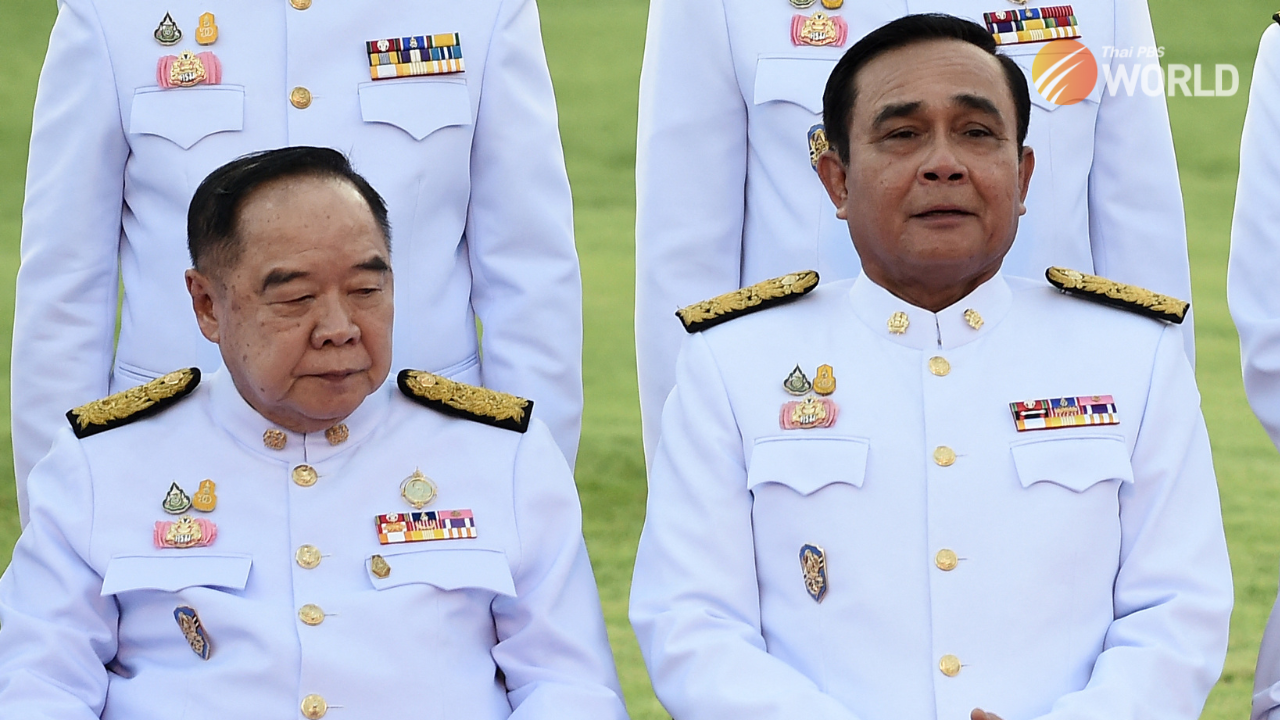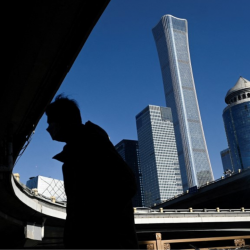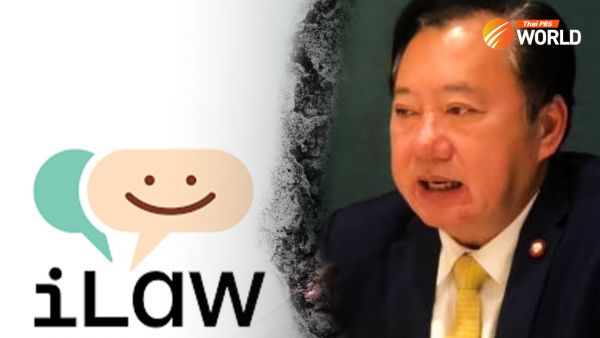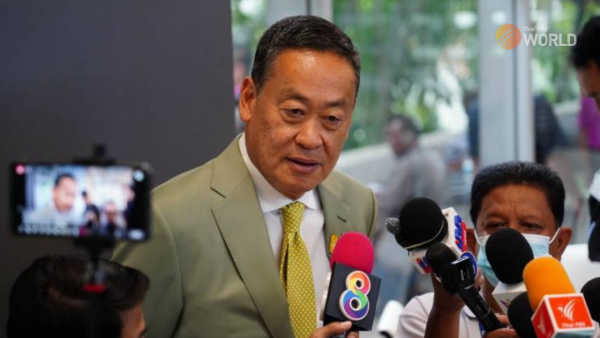Analysts decode Prawit letter for clues to Thailand’s post-election political landscape

Prawit Wongsuwan is seeking to persuade skeptical voters that his ruling Palang Pracharath Party has no connection with Prayut Chan-o-cha’s Ruam Thai Sang Chart Party, say political analysts.
Palang Pracharath is trying to counter a perception that the parties are allies and that voting for either one will help Prayut return as prime minister, they say, citing a letter posted on Prawit’s Facebook last Friday.
The fraternal bond between Prawit and Prayut will undoubtedly remain strong, but the brothers-in-arms must play clearly separate roles in their respective parties ahead of the next election, analysts add.
Palang Pracharath politicians want public perceptions of a link between their party and Prayut to be eradicated after the PM joins Ruam Thai Sang Chart, aka United Thai Nation, which was set up in March 2021. That explains why the ruling party opted to send its message through the letter written under the party leader’s name, analysts say.
The letter said it was now clear that Prayut would leave Palang Pracharath, which nominated him as its sole PM candidate in the 2019 general election, to join his “backup party”.
“I once said ‘3Ps forever’. I feel the same now. Nothing has changed at all. Now that he [Prayut] has made his decision, I have no words to explain how I’m feeling. What I can do is congratulate him and wish him success in the new political path he has chosen,” the letter read.
“3Ps” is the Thai media’s nickname for the three former brothers-in-arms at the top of Thai politics, ex-Army commanders Prawit, Prayut and Anupong “Pock” Paochinda, the Interior Minister.
Palang Pracharath in difficult position
Wanwichit Boonprong, a political science lecturer at Rangsit University, said the letter’s message was that Palang Pracharath and Ruam Thai Sang Chart are going their separate ways. “Also, it is signaling that Prawit does not agree with Prayut,” he added.
The analyst said the ruling party is playing this game because it is now in a difficult position. Palang Pracharath is widely suspected of harboring plans to reunite with Prayut’s party after the election despite rumors that it is aiming to join hands with the opposition Pheu Thai Party and the coalition Bhumjaithai Party, which are expected to come first and second, respectively, in the national vote.
“A big problem for Palang Pracharath is that people believe votes for the party will finally translate into Prayut’s return as prime minister. Nobody believes Prawit can become prime minister,” Wanwichit said.
He said that certain Palang Pracharath figures had previously sought to distance the party from Prayut by opposing a proposal by a group of senators to remove the PM’s eight-year term limit by changing the Constitution.
If elected as prime minister again, Prayut will be able to serve only until April 6, 2025, as per the Constitutional Court verdict on his term limit.
Only Prayut, Prawit and Paetongtarn can realistically gun for PM post
Prayut’s party under attack
Rangsit University’s Wanwichit views that other political parties are attacking Ruam Thai Sang Chart in a bid to remove Prayut from the political equation. If they succeed in getting rid of him from the race for prime minister, the Senate’s power in electing the next PM will be neutralized, resulting in senators voting freely. But if Prayut remains in the race for the premiership, his competitors’ bargaining power will be diminished.
Yuthaporn Issarachai, a political scientist from Sukhothai Thammathirat Open University, agrees that the Prawit letter was meant to signal that Palang Pracharath and Ruam Thai Sang Chart are separate.
He said the Prawit letter was published after the ruling party suffered a string of defections by MPs to Ruam Thai Sang Chart and other parties. Defectors included veterans like Werakorn Khumprakob, who has just left to join Bhumjaithai.
However, Yuthaporn doubts the letter was authored by the Palang Pracharath leader. “I don’t think Prawit wrote it himself, but certainly he is aware of its content as it was written under his name,” the analyst said.
‘Unity of 3Ps to remain intact’
He is convinced that Prawit and Prayut have retained their strong personal ties, as breaking their brotherly bond would end the “3Ps” formula that has successfully dominated Thai politics since the 2014 coup.
For Yuthaporn, despite a general perception that Prayut and Prawit are drifting apart politically, their unity within the “3Ps” will remain intact due to their long relationship which goes back to their days as young military officers.
“The trio will not let the 3Ps fall apart because that would mean an end to their political life. They need to protect their political interests, which is why they have to keep their hands joined,” the analyst said.
Indeed, he sees no signs of the 3Ps collapsing any time soon, with the birth of Prayut’s party just the trio’s latest strategy to remain in politics.
“I believe that after the election, they will reunite because they have the same DNA,” Yuthaporn said, pointing out that politicians of the two parties share the same network.
He views the strategy will be beneficial to the 3Ps in the current political context, where electoral rules have been changed.
Wanwichit agrees that Prawit and Prayut still have good personal ties despite apparent conflict between their followers. “Prawit’s aides may ask why he has to back down again after Prayut has been prime minister for eight years already,” said the analyst.
He forecasts that even though the 3Ps can make their comeback after the election, they will face increased challenges from lawmakers, which will make controlling the House of Representatives more difficult. “If Prayut does return to power, MPs will fear him less than they do now.”
Prayut’s return ‘highly likely’
Prayut’s switch to Ruam Thai Sang Chart makes it highly likely that the current coalition will return with Prayut as prime minister after the election because the powers-that-be still have 250 senator votes in their pocket, said Yuthaporn.
As per the Constitution, the Senate still has the power to join the 500-member Lower House in electing the next prime minister after the national poll. A PM nominee needs majority support from both Houses – at least 376 votes – to win the seat.
“Ruam Thai Sang Chart may win no more than 50 MP seats, but they will be able to form the next government due to support from the 250 senators. The next government will look like the present one as the existing coalition partners are forming a loose alliance,” Yuthaporn said.
That scenario also raises the possibility that Prayut’s new government could seek to amend the charter to remove the clause on the PM’s eight-year term limit.
Wanwichit warns, however, that any such move would trigger massive protests.
“People would be angry that eight years were not deemed enough for Prayut,” the analyst said.
By Thai PBS World’s Political Desk






